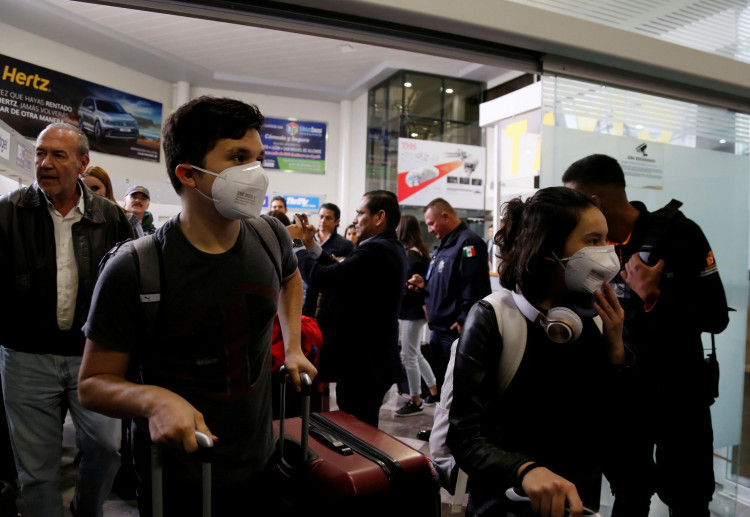Governments are in a rush to keep the Wuhan coronavirus from spreading across their countries amid fears that the novel virus is looking more and more like a pandemic.
Among the countries that recently rolled out new travel restrictions is the United States.
U.S. Blocks Travelers Who Visited China 2 Weeks Before Arrival
According to CNN, the new and stricter travel restrictions that took effect late Sunday include temporary denial of entry to foreign travelers who were in China at least two weeks before their arrival to the United States, marking what could be one of the most stringent travel-related move from the country ever since the coronavirus outbreak kicked off.
U.S. President Donald Trump has been urging his countrymen not to be too worried about the virus, however, the health department's latest travel limit roll out could indicate growing unease among American health experts.
Even U.S. citizens cannot escape the new travel restrictions. Citizens returning to the country from mainland China will be required to go through appropriate health screenings. A 2-week self-quarantine watch may also be necessary, depending on the observation of medical screening experts.
Finally, American citizens, who, in particular, came from Hubei province, will be forced to be put on quarantine for monitoring of up to 14 days.
Australia Denies Entry to Most Travelers from China
During the weekend, Australia imposed a ban on most traveling people from China. According to BBC, Australia said even its own citizens who will arrive from the coronavirus' country of origin will be mandated to be on quarantine for up to two weeks.
So far, there are 12 confirmed cases in Australia. Two were recorded in South Australia as well as in Queensland, while there were four confirmed cases in Victoria and four in New South Wales.
Russia Shuts Border Following Confirmation of First Coronavirus Cases
Turkish state-run news agency Anadolu reported over the weekend that it will shutter the border with Mongolia. The country also canceled all air travels to China. The government is also working to evacuate Russian nationals.
Despite the cancelation of air travels to the origin country, the following flight destinations under Aeroflot have not been canceled so far: Hong Kong, Beijing, Guangzhou, and Shanghai.
The decision of closing down Russia's border with Mongolia came after the country confirmed its first two cases of the novel virus that has already infected thousands around the world.
Italy Declares State of Emergency
Late last week, Italy declared a state of emergency following the confirmation that two Chinese tourists to the country tested positive of the Wuhan coronavirus.
According to Voice of America, the Italian government also announced the closure of all air traffic to and from China. The Chinese tourists, who tested positive, are currently receiving treatment and are being observed in a hospital in Rome.
Prime Minister Giuseppe Conte said last week that despite the confirmation of two cases in the country, health experts in the country are doing everything necessary stops the disease from spreading.
Singapore Blocks Visitors with Mainland China Travel History
Singapore, in efforts to hopefully stop the novel coronavirus from spreading in the city-state, announced last week that all nations, whether Singaporean or of foreign descent, will be denied entry if they have a travel history in mainland China, Channel News Asia reported.
Tourists or travelers with Chinese passports will also be banned from entering Singapore. Only permanent residents of the city-state and those who have long-term passes will be allowed to enter.
Experts Question Feasibility of Travel Bans Amid Coronavirus Fears
Meanwhile, some health experts and analysts have started questioning whether travel restrictions are actually a helpful response towards the spread of a virus.
In an op-ed for health website STAT, health and medicine journalist Megan Thielking wrote that public health experts are warning against the move of implementing stricter travel policies during a virus outbreak.
Thielking said public health experts believe banning travels around the world at the peak of the coronavirus outbreak may not be the best response and could make it even harder to get to the bottom of containing the virus.
Too Much Caution 'Isn't a Good Idea,' Expert Says
At a time when panic is settling in around the world, Dr. Tara Kirk Sell noted that travel bans might not be the most effective move. Speaking with Forbes, Sell, who is a senior scholar at Johns Hopkins Center for Preparedness explained that a travel ban will most likely only "slow down" the spread of the coronavirus.
"Doing things out of an 'abundance of caution' isn't a good idea," Sell argued. She added that quarantines and travel restrictions "have real consequences" as these come with massive costs and apparent risks.
Death Toll Passes 360
As of Sunday, the death toll in China was confirmed at 361, with the Philippines also recording its first death due to the novel coronavirus. The Philippines' case marked the first death outside of the virus' origin country.






